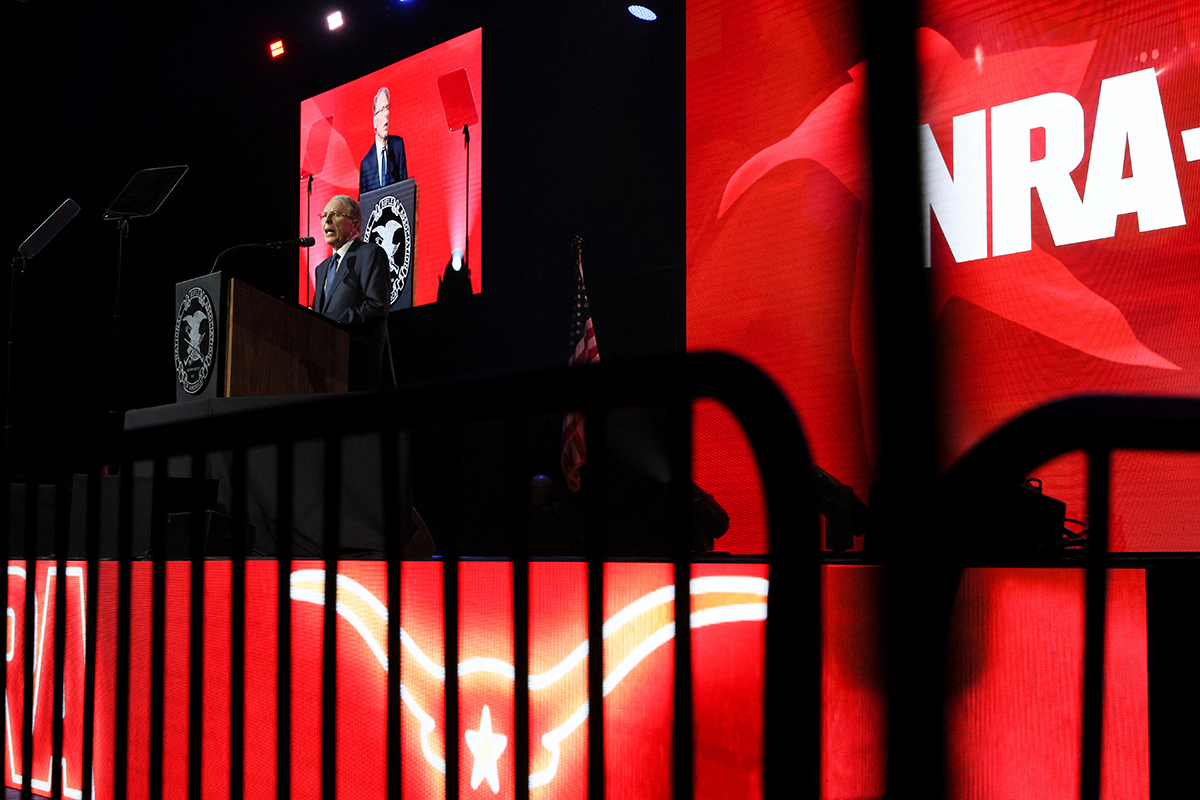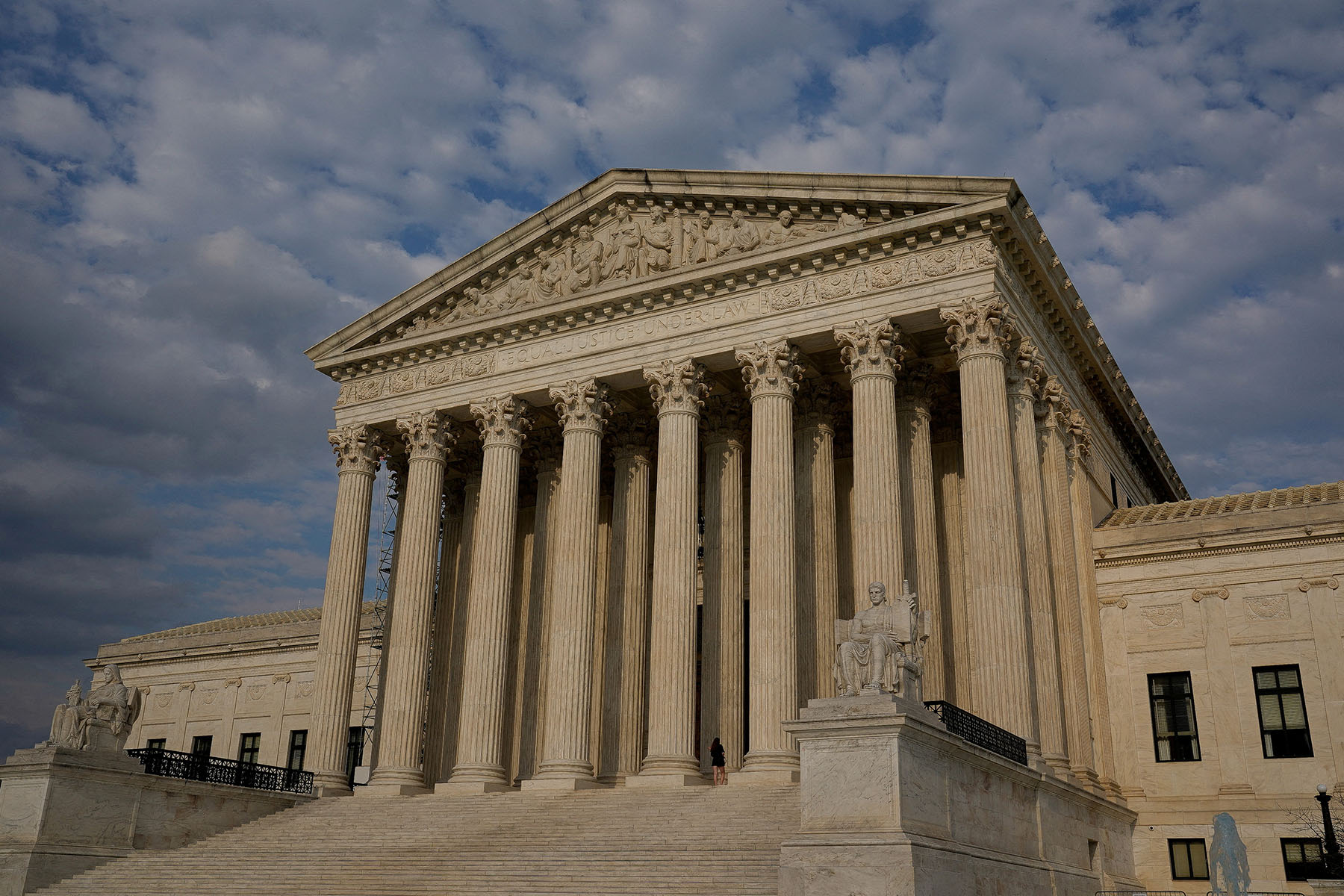FAW: The ACLU has expressed its disapproval of the NRA’s views, but it still decided to take them on as a client. Why? Was it a difficult decision? Who ultimately decided to take the case and how was that decision made?
DC: So, the executive director and I made the choice, after hearing from lots of folks within the organization, consulting with lots of interested parties at the ACLU. The reason we did it really was that this is, in our view, a very important First Amendment case. We got involved five years ago when the case was first filed in an amicus brief supporting the NRA at that point, because we felt that if New York can get away with doing this for the NRA, then what would stop Arkansas from doing this to go after Planned Parenthood, for Texas to go after women’s rights groups, for Florida to go after trans rights groups? The First Amendment provides universal protection and if you don’t protect it across the board, it will come back to hurt the very people who we are working with.
FAW: You’re referencing these sweeping consequences for other causes as a result of a decision in favor of Vullo. I’m curious, did the threat of these consequences outweigh the pushback that the ACLU received from its other chapters?
DC: This is what the ACLU is. We are an organization that defends the Bill of Rights, and does so on behalf of folks with whom we deeply disagree. The reason we do that is we think these rights have to be protected universally, that if they are not protected universally they will lose their ability to protect the many organizations with which we work to further other causes, like racial justice, women’s rights or abortion rights. So, at the end of the day, this is an important case that we stand up and defend. And the other thing I’d say is there’s really one Supreme Court case on point with respect to the problem of informal and indirect efforts to penalize speech, and that’s Bantam Books v. Sullivan from 1963, 60 years ago. So there’s not a lot of Supreme Court law on this, and the fact that a unanimous panel of the Second Circuit could conclude and find that what Vullo did was mere speech and not coercion was deeply disturbing. And we felt it important to stand up and reverse that decision to ensure that the protection against informal, indirect censorship campaigns is a meaningful one, and a meaningful one for everyone.
FAW: As gun violence has increased, the topic of gun control has become an even more contentious issue in the United States. Vullo’s letters were prompted by the deadly Parkland shooting which took the lives of 17 people in 2018, and her attorney argued that it is her right as a government official to address issues of public concern. A federal appeals judge agreed that her statements were “written in an even-handed, non-threatening tone and employed words intended to persuade rather than intimidate.” Given the stakes of the situation, where would the line be drawn between Vullo’s duty to address such issues, and the First Amendment rights of the NRA? Should there be one?
DC: We don’t disagree that government officials can speak their mind. And had she written an op-ed condemning the NRA, this would be a very different case. She didn’t write an op-ed. She instead invoked her official authority as the ‘Sheriff of Wall Street,’ as the superintendent, to issue an official guidance to every bank and insurance company in the state of New York, urging it to reconsider its relationships with the NRA, and a press release the same day urging them to cut off all ties with the NRA. That is not just speaking your mind. That is not just an op-ed. A guidance is a formal document that she is authorized by New York law to issue and no one else is authorized to issue it. And it has to be taken seriously by the financial institutions that she oversees. And when she claims that because the NRA is unpopular, they face “reputational risk” in continuing to do business with it, they have to take that seriously. And particularly when she had issued multimillion dollar fines against other institutions for failing to take reputational risks seriously. Again, you know, no question that government officials have a right to speak their mind. What they don’t have the right to do is to deploy their official authority over regulated entities to coerce them into effectuating a blacklist of a politically disfavored group.
FAW: You told the New York Times that federal officials could use a decision in favor of Vullo to abuse their power, and noted that Donald Trump could use such a decision as a playbook to retaliate against his opponents. Could you tell me more about this? How would Trump use this for his own gain?
DC: The reason we have a First Amendment is to protect against government officials who are likely to abuse their power against those with whom they disagree. I don’t know anyone who’s more likely to abuse his power against those with whom he disagrees than Donald Trump. He’s done it time and time again. And he’s already proud to up the ante if he is reelected, and this would give him a green light to use the federal government’s substantial authority over all sorts of private businesses and private actors to seek to essentially penalize, boycott, blacklist, you pick the word, any organization with which he disagrees, and there are many. And so yeah, we think this is an important principle, precisely because there are government officials like Donald Trump who are quite ready and willing to go after their enemies, using whatever tools that they have available to them. And the Second Circuit’s decision would give him a very, very powerful tool.
FAW: The ACLU has been criticized in the past for taking on controversial cases, like that of the 1970s Nazi march in Skokie, Illinois. But in recent years, the organization has reportedly been roiled by internal conflict over whether it should focus more on progressive causes. The New York Times described it as an “identity crisis.” What do you think of this descriptor? Is this case a way to combat it?
DC: I think the criticism is entirely unfounded. There’s a piece on our blog that lays out in detail all of the conservative causes that we have defended over the last six, seven years, the period when critics started saying that we were not defending those with whom we disagree. We have consistently done so, and the record demonstrates that. This case is another example. But you know, just last month, we filed a case in D.C. on behalf of WallBuilders, a fundamentalist Christian organization from Texas that we are often up against in litigation in Texas. But we are defending their First Amendment rights to have advertising space in the Washington Metro system. We filed an amicus brief in support of a fundamentalist Christian group and the Supreme Court in Shurtleff a couple of years ago, which was a First Amendment case about whether they could fly their flag in front of Boston City Hall. We supported the Koch Brothers non-profit in a First Amendment challenge in the Supreme Court a couple of years ago to challenge a requirement that nonprofits disclose their top donors to the California Attorney General. We defended a high school student who was suspended from school for having posted an antisemitic statement on his Snapchat. That case was decided by the 10th Circuit this past year. We defended the rights of another group that had been protesting Israel and making antisemitic statements across from a synagogue a year or so ago. We’ve defended Trump himself when he was kicked off of Facebook and Twitter. So I think the criticism is unwarranted. The critics have not cited a single case that we turned away, because it was on behalf of a conservative cause. And I think this most recent case, simply, underscores that the criticism has never been based on fact.
One of the things that they say is that we represented the guy who got the permit in Charlottesville, again, someone with whom we deeply disagree, but one of the things that critics point to is that after that happened, we developed case selection guidelines. And people said those were basically a way to avoid taking cases on behalf of those with whom we disagree. I wrote those guidelines. And I wrote those guidelines to underscore as they say, expressly, that we believe in the First Amendment rights of all people and we will continue to defend First Amendment rights of all people, including white supremacists, and that’s a quote from the guidance memo, because it’s critical to do so. We also defend racial justice, we defend trans rights, we defend women’s rights. Because we’re a multi-issue organization, sometimes there will be conflicts between First Amendment and equality concerns, between First Amendment and privacy concerns, between privacy concerns and equality concerns. And so what the case selection guidelines say is, when that happens, we have a process by which we gather together the people who have different points of view on the question and we talk about whether this is a case that’s important to bring. Are there ways that we can do it that mitigate the harm? We have gone through that guideline process on multiple occasions, since we adopted them, and in no instance do we say we’re not going to bring we’re not going to take on a case because it’s too controversial. And indeed, we went through that process in this case. So is there 100% agreement about whether we should do that, whether we should take this case in the ACLU? Obviously not. We are an organization with about 2,000 people, so there’s not 100% agreement on anything. But we’re doing it and I think that’s what ultimately is the best evidence of what’s going on.
NRA Free Speech Lawsuit Dismissed Against NY State Financial Regulator
The National Rifle Association claimed that a New York state financial regulator coerced and threatened banks and insurers to sever business relationships with the gun group, according to the 2018 lawsuit, which claimed the regulator's "intent [was] to obstruct, chill, deter, and retaliate against the NRA’s core political speech." But, a federal appeals court recently found that the regulator's actions were done in "good faith" and dismissed the complaint.
Read More


